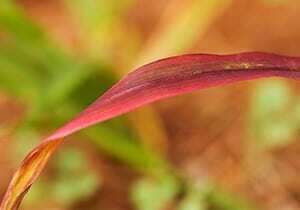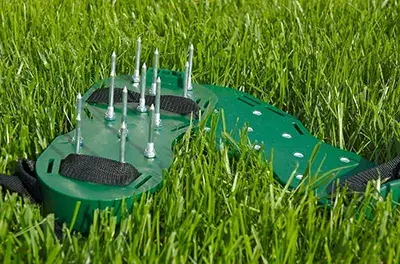Winter weeds can become a real eyesore out in the middle of the front lawn.
Weeds enter a lawn for one reason; your lawn is not growing well. Ouch, we know.
The weeds that are present now are winter annual weeds. An annual is a plant that will germinate from a seed, grow, flower, set seed and die in one year.
The dying part sounds promising, but the problem to be concerned about is the setting of seed. Thousands of seeds will be sown and waiting patiently for their big chance to shine next winter.
Winter weeds can be divided into two large groups: grassy or broadleaf.
If it looks like a grass, with a slender blade-type leaf, it is most likely in the grassy division. Broadleaf plants have a more diverse collection of leaf shapes. Here’s a list of common Texas winter weeds.
Common chickweed

A mat-forming winter annual with numerous branched stems. The leaves are opposite, smooth, oval to broadly elliptic in shape. Reproduces by seed. Located throughout North American except for the Rocky Mountains.
Clover
Another winter annual with prostate, hairy branched stems. The leaves alternate with three leaflets that are serrated from a mid-blade to tip. Numerous bright yellow flowers attach at the leaf axils in loose clusters. Found in the continental United States except for the Southwestern states.
Purple deadnettle

The easiest to identify when it blooms in early spring – the top few leaves turn purplish to set off the pink flowers. The flowers will continue to bloom even in the winter season, providing food for honeybees during warm days. The Purple Dead Nettle is listed as an invasive species in some parts of North America. Young plants have edible tops and leaves, good in salads or in stir-frys as a spring vegetable.
Dallisgrass 
Dallisgrass is a perennial, warm season grass that readily invades turfgrass throughout Texas and the Southeastern states. It grows in clumps or bounces with leaves produced near the base of the plant on shoots that arise from a knotty base of very short rhizomes.
The presence of weeds in any yard is not only aesthetically displeasing, but also weakens the grass. Water, nutrients, and space to grow all become hot commodities when unwanted plants are introduced.
All of our program customers (with 5 or more lawn applications a year) get free unlimited service calls, so let us know if you’d like us to come spot treat those pesky winter weeds in preparation for a green spring.
As always, if you have any questions, feel free to reach out to our lawn care experts at Emerald Lawns: (512) 990-2199 or contact us online.






